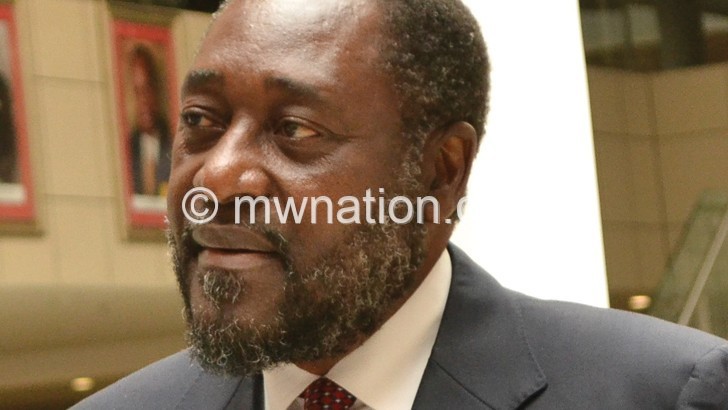Government responds to Nkhoma Synod Pastoral Letter
Government has taken a swipe at Nkhoma Synod over corruption accusations in its pastoral letter, arguing the church should not be pointing fingers when it was also involved in a K61 million fraud of donor money in 2014.
But the Synod has said it did not issue the pastoral letter for government but its church members.

In its scathing pastoral letter issued on Sunday, Nkhoma Synod of the Church of Central Africa Presbyterian (CCAP) urged its faithful to vote, in the May 21 Tripartite Elections, for an upright president who is development-conscious and will get rid of the rampant corruption, tribalism and regionalism.
But in a press statement issued yesterday, signed by Information and Communications Technology (ICT) Minister Henry Mussa, government a accuses the church of misappropriating donor funds meant for water, sanitation and hygiene project five years ago.
It reads in part: “Nkhoma Synod should be the first to acknowledge the seriousness of this problem as it has not spared even places where the nation should be turning to for deliverance. The synod will recall that in 2014, the United States Agency for International Development (USAid) demanded that the church should refund money amounting to K61 886 389.11 siphoned through fraud that hit a water, sanitation and hygiene project USAid financed and which the synod was implementing.
“Actually, the Nkhoma Synod general secretary (at the time) Reverend Vasco Kachipapa was quoted in the Weekend Nation edition of June 15 2014 as saying, “the church is in shame.” This is just one example of the extent of corruption and justifies the call by government on those who love to criticise to stop finger pointing, to refrain from holier than thou behaviour and join hands in fighting the vice.”
Nkhoma Synod moderator the Reverend Bizwick Nkhoma, when contacted yesterday, said the church wrote the pastoral letter for its membership and not for someone to comment on the matters raised in it.
He said: “We did not write the pastoral letter to argue with other people. We do not want to fall in any argument on this. Counter arguments have nothing to do with us. We wrote it and we will not make any argument.”
Meanwhile, political commentator Emily Mkamanga and University of Livingstonia political science lecturer George Phiri have faulted government reaction to the pastoral letter.
Mkamanga observed that people have generally applauded the contents of the letter which points out a number of issues the Democratic Progressive Party (DPP) administration has failed to address during President Peter Mutharika’s five-year reign.
She further argued that the synod, through Reverend Kachipapa, admitted publicly in 2014 that some members embezzled funds, hence the need to refund it.
Said Mkamanga: “I think it is not proper for government to respond. There are a number of issues which were previously raised. CSOs [civil society organisations] raised the same concerns, but government has never responded. Why is it responding to the church? There is nowhere it can go with that? By the way the church admitted its failures in public.”
On his part, Phiri also observed that government will not benefit from finger pointing because it “has no power to influence the church at this time”.
He said: “I do not think government should take a church as its competitor at this time. It will not win the game. I think it should have stayed quiet.”
One of the CSO leaders under the Human Rights Defenders, Gift Trapence, whose organisation is engaged in the national anti-corruption fight, said by making such a counter-argument, the DPP administration is in denial of its corruption scandals.
The letter, which provided direction to its faithful on what kind of leader to vote for in the elections, also attacked government for its indecisiveness in cracking down on alleged killers of people living with albinism.
It added that government had also been inert in investigating mysterious deaths of former Anti-Corruption Bureau (ACB) official Issa Njauju, former Polytechnic student Robert Chasowa and, lately in police custody, suspected albino abductee Buleya Lule.
While he sounded diplomatic in the preamble of yesterday’s statement, the Minister of Information punched holes in the synod’s pastoral letter for its “misplaced facts” and “creation of erroneous impressions”.
He said government has neither feigned ignorance of the malfeasance nor denied that corruption is deep rooted in the country.





